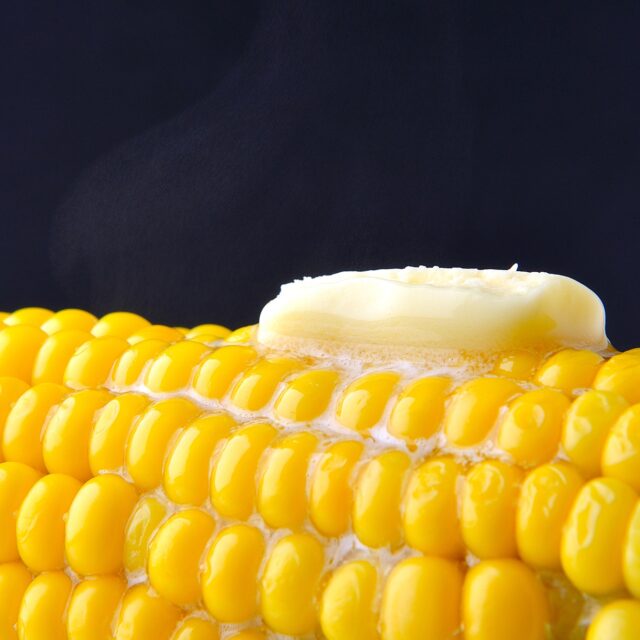
Claim: A viral TikTok video, forwarded many times on WhatsApp in Nigeria, claims corn silk cures several diseases.

More context is needed. While there exists some record that corn silk helps in promoting wellbeing, there is insufficient information about dosage and duration of treatment to cure specific diseases.
Full Text
There is a paradigm shift from Evidence Based Medicine (EBM), (which involves the use of only evidence-based methods and medications in treating patients) to a nutrition based approach in which many experts and private individuals promote general wellness and disease prevention/treatment using food and other locally available herbs and spices.
While nutrition plays a significant role in health and wellbeing, there is insufficient evidence that food can be used to cure serious diseases like cancer and other major illnesses once they occur.
A viral video that has been forwarded many times on WhatsApp in Nigeria claims that corn silk cures many diseases. The 35 seconds video shows a woman demonstrating how to prepare corn silk for treatment. She asks viewers to “boil some water, put in the corn silk, turn off the stove and let it simmer for 30 minutes and drink the water”. She went on to say that the mixture is very good for curing “bladder infection, kidney stones, heart failure, inflammation of the prostate, urinary system, and diabetes.” She ended by noting that “simple things in life will give healing, it’s all about life changes” and encourages everyone to “try it.”
Screenshot of the viral video on WhatsApp
Verification
Dubawa searched TikTok and found the video on Sharon’s page. She uses @eden.health and has 548,000 followers and 2 million likes. Her philosophy is “Let Food Be Your Medicine and Medicine be your Food.”
Dubawa searched her page and discovered that the corn silk video was recorded in two parts; the second part has been watched over 515,000 times, gained over 24,000 likes and shared 2,550 times. The only new information in the “CornSilk: Part 2” video is her recommendation that viewers drink 1 to 2 cups in a day at room temperature.
Screenshot of the Part 2 of the corn silk video on TikTok
Many of Sharon’s followers confirmed that they remembered their Asian grandparents taking corn silk tea, some were eager to try out the ‘health’ recipe while others were curious about its efficacy.
What is Corn Silk and what does it do?
Corn silks are the “long shiny and silky fibers that grow inside the husks of ears of corn.” They are the “yellowish thread-like strands from the female flower of the corn/maize plant.” Corn silk has been used as medicinal herbs in Asia for a long time.
In a 2012 study published in Molecules, Hasanudin, Hashim and Mustafa assert that corn silk can serve as an antioxidant, anti-depressant, anti-fatigue, a diuretic agent and can help reduce hyperglycemia – thereby confirming the claims made by Sharon in her TikTok video. The researchers, however, concluded their study by noting that “it is important to carry out clinical evaluations to substantiate the claims and further enhance the confidence in its beneficial therapeutic effects for human consumption”. This means that the researchers recognize the need for further research to approve the product for human beings.
Also, researchers Maksimović, Malencić and Kovacević, in their 2005 study published on Bioresour Technol, while confirming the benefits of corn silk, highlight the need for the herbal drug derived from corn silk “to be more precisely defined,” as observed activities and micronutrients contents “were greatly dependent on plant material source,” which means that there are differences in the components of the various corn silks that people may have access to, which will ultimately influence the benefits they can derive from it. This position is also the conclusion by other researchers in a 2015 study published in the journal, Food Chemistry.
Commenting on the suitability of corn silk for consumption and treatment of diseases, an Associate Professor of Botany, Dr. Akeem Babalola Kadiri, a lecturer in the Botany Department of the University of Lagos said while corn silk is indicated for the treatment of many diseases, including optical conditions like glaucoma, “all of the claims still require scientific proof.”
A Senior Lecturer in the Department of Botany, also in the University of Lagos, Dr. Temitope Onuminya, told Dubawa that most studies about the efficacy of corn silk have been conducted in mice and not on humans. She also noted that corn silk, “when taken in high doses, can cause liver toxicity” and “interfere with the medications that patients are using in treating diabetes, as well as high and low blood pressure.”
However, Dr. Onuminya notes that daily doses as high as 4.5 grams per pound of body weight (10 grams per kg) are likely safe for most people. Corn silk is available as a supplement in some countries and she recommends taking a maximum dosage of “400-450 milligrams 2-3 times per day.” She however warned that a dose of more than 2,000 mg/kg can be lethal.
Conclusion
More context is required about whether regulatory authorities and researchers have agreed that consuming corn silk is safe for use by humans, as most studies on corn silk have been conducted on mice. There is also a need to clarify the type of corn silk that can be used (corn silk tea or its manufactured supplements), and how they can be used without people harming themselves and others close to them.




